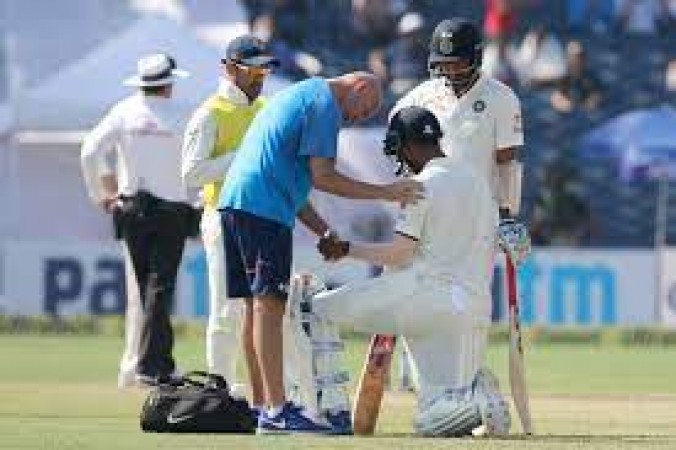
Cricket, a sport that demands peak physical fitness, surprises many when even the fittest of players experience cramps. In this exploration, we delve into the paradox of cramps in the realm of cricket, where athleticism meets unexpected adversaries.
Despite undergoing rigorous training regimens, cricketers find themselves susceptible to cramps. It's a paradox that challenges the conventional belief that optimal fitness guarantees immunity against muscle cramps.
The intensity of a cricket match, with its sudden sprints, quick turns, and prolonged periods of play, can lead to overexertion. This physical strain often results in dehydration, a major trigger for muscle cramps.
Prolonged hours of play lead to muscle fatigue, even in the most conditioned athletes. The insufficient recovery time between intense sessions contributes significantly to the occurrence of cramps.
Sweating, a natural response to physical exertion, causes the loss of vital electrolytes. The imbalance in electrolytes, particularly potassium and sodium, plays a crucial role in the onset of cramps.
The high-intensity nature of cricket demands substantial energy, depleting potassium levels. This depletion, if not addressed, becomes a contributing factor to cramping episodes.
Optimal hydration involves more than just water intake. Cricketers benefit from replenishing electrolytes lost during play, emphasizing the need for electrolyte-rich drinks.
Magnesium, often overlooked, plays a crucial role in muscle function and relaxation. Including magnesium-rich foods in a cricketer's diet can alleviate cramp occurrences.
Adequate protein intake is essential for muscle repair and recovery. Insufficient protein can exacerbate muscle cramps, making protein-rich diets vital for cricketers.
Proper warm-up rituals enhance muscle flexibility and reduce the risk of cramps. Stretching exercises and light activities prepare the body for the intense physical demands of the game.
Scheduled breaks during play serve as crucial intervals for players to rehydrate and recover. Adequate rest between sessions is paramount in preventing muscle fatigue and subsequent cramps.
Recognizing that each player is unique, tailoring fitness routines to individual needs and vulnerabilities is essential. Customized plans address specific weaknesses, minimizing the occurrence of cramps.
High-stakes matches induce stress, both mental and physical. Stress-related tension can manifest as cramps, emphasizing the mind-body connection in sports.
Often overlooked, the choice of footwear can impact biomechanics significantly. Ill-fitting or inappropriate footwear can lead to poor biomechanics, increasing the risk of cramps.
Genetics can play a role in an individual's susceptibility to cramping. Understanding genetic factors aids in the development of tailored prevention strategies for each player.
Environmental conditions, especially heat and humidity, contribute to increased sweating. Excessive sweating heightens the risk of dehydration and subsequently, cramps.
Cooling down post-match is as crucial as warming up before play. Facilitating muscle recovery through post-match rituals reduces the likelihood of cramps in the aftermath of a game.
Collaborating with experts, including physiotherapists and nutritionists, ensures comprehensive care. Professional guidance in managing nutrition and recovery is paramount for cricketers.
Integrating mental and physical training into holistic programs acknowledges the interconnectedness of the mind and body. Such programs address both the physiological and psychological aspects of cramp prevention.
Regular assessment of fitness and health status allows for dynamic adjustments to training and recovery plans. Continuous monitoring ensures that strategies are adapted based on ongoing evaluations.
In the dynamic world of cricket, cramps remain an enigma despite the pinnacle of fitness that players strive to achieve. While science sheds light on various contributing factors, the interplay of physical, psychological, and environmental elements makes cramps a complex puzzle. As cricketers continue to strive for excellence on the field, understanding and mitigating the risk of cramps become integral components of their journey. It's not merely about physical prowess but a delicate balance of preparation, recovery, and adaptability.
Why President Muizzu Is Advocating for the Absence of Indian Military in Maldives ?
Google made a doodle before the World Cup final
Flashback to 2003: India Seeks Vengeance for World Cup Final Defeat Against Australia